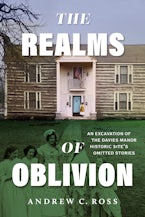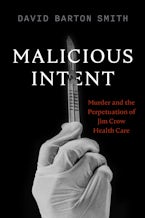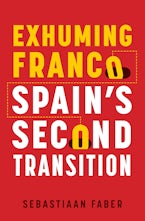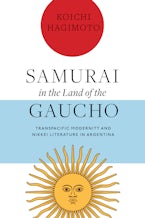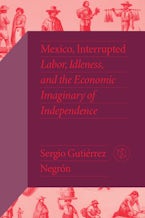- Home
- The End of Catholic Mexico

The End of Catholic Mexico
Causes and Consequences of the Mexican Reforma (1855–1861)
In The End of Catholic Mexico, historian David Gilbert provides a new interpretation of one of the defining events of Mexican history: the Reforma. During this period, Mexico was transformed from a Catholic confessional state into a modern secular nation, sparking a three-year civil war in the process. While past accounts have portrayed the Reforma as a political contest, ending with a liberal triumph over conservative elites, Gilbert argues that it was a much broader culture war centered on religion. This dynamic, he contends, explains why the resulting conflict was more violent and the outcome more extreme than other similar contests during the nineteenth century.
Gilbert’s fresh account of this pivotal moment in Mexican history will be of interest to scholars of postindependence Mexico, Latin American religious history, nineteenth-century church history, and US historians of the antebellum republic.
Gilbert’s fresh account of this pivotal moment in Mexican history will be of interest to scholars of postindependence Mexico, Latin American religious history, nineteenth-century church history, and US historians of the antebellum republic.
Introduction: The Reforma as Culture War
Chapter 1. The Road to the Reforma
Chapter 2. The Radicalization of the 1854 Revolution
Chapter 3. La Cruz and the Formation of a Catholic Reaction
Chapter 4. Resistance and Retribution (1856)
Chapter 5. Debating the Religious Future of the Nation
Chapter 6. The Constitutional Crisis of 1857
Chapter 7. The War of the Reforma (1858–1860)
Chapter 8. The End of Catholic Mexico
Bibliography
Notes
Index
Chapter 1. The Road to the Reforma
Chapter 2. The Radicalization of the 1854 Revolution
Chapter 3. La Cruz and the Formation of a Catholic Reaction
Chapter 4. Resistance and Retribution (1856)
Chapter 5. Debating the Religious Future of the Nation
Chapter 6. The Constitutional Crisis of 1857
Chapter 7. The War of the Reforma (1858–1860)
Chapter 8. The End of Catholic Mexico
Bibliography
Notes
Index
David Gilbert is a professor of history at Clayton State University.
"Powerfully argued and full of insight, this lively account traces the growing intensity of partisanship around Catholicism leading up to the Reform. Gilbert sees the Reform as not just anticlerical but also anti-Catholic, and he provides compelling evidence—an impressive array of pamphlet literature, editorials, opinion pieces, and speeches—to support this view of a political movement that was profoundly cultural."
—Margaret Chowning, author of Catholic Women and Mexican Politics, 1750-1940
"How did an 'exclusively Catholic' nation come to engage in a struggle over religious ideals that culminated with the separation of church and state? By interpreting the Mexican Reforma as a 'culture war,' this carefully researched book helps us understand the dynamics of polarization and the decisive importance of religion in public life."
—Pablo Mijangos, author of The Lawyer of the Church: Bishop Clemente de Jesús Munguía and the Clerical Response to the Mexican Liberal Reforma
"David Gilbert’s The End of Catholic Mexico, the first comprehensive account of Mexico’s Reforma in forty years, rightly emphasizes the cultural and religious aspects of what is seen too often as a mainly political conflict. Gilbert’s archival research and thoughtful analysis bring to light the truly radical nature of the Reforma. This groundbreaking work is the most illuminating book, by far, that I have read on this pivotal era of Mexican history."
—Todd Hartch, author of The Rebirth of Latin American Christianity



